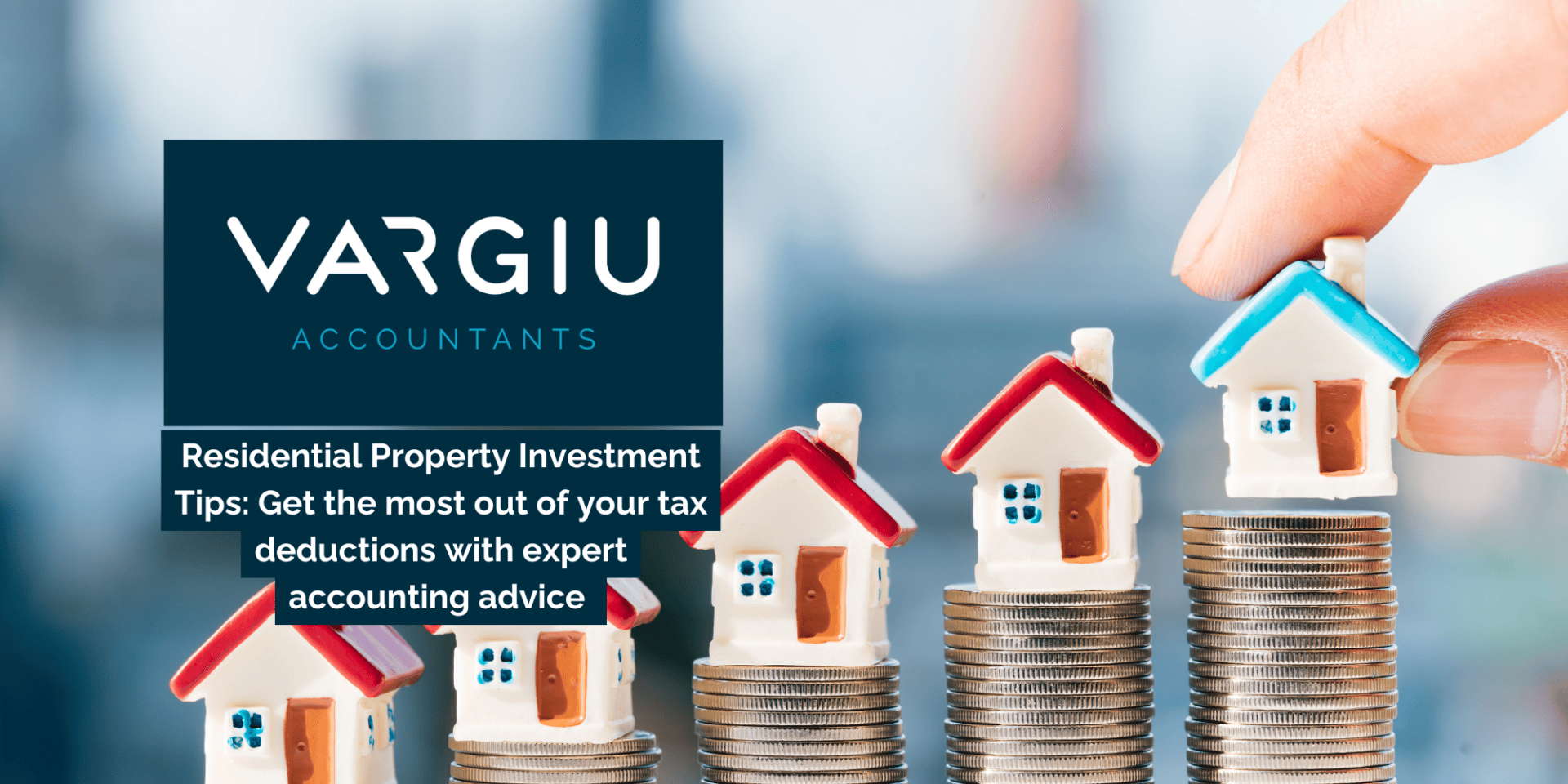Residential Property Investment Tips: Get the most out of your tax deductions with expert accounting advice

Investing in residential properties can be a great way to build wealth, but it’s also complicated with taxes. Knowing how to claim interest on loans, depreciation, and other costs associated with your investment property is key to getting the most out of your investment. This guide is for property investors. If you need professional advice, our team of Melbourne accountants specialises in real estate investment accounting.
Interest on Loans During Construction
When building a residential rental property, one of the most common questions is whether I can claim interest on loans and other holding costs before the property is available for rent. Let’s look into this.
Example: Ren’s Investment Property
Ren bought a block of land for $700,000 and borrowed $550,000 to build a residential property. The build was completed on 10 November 2023, and the property was listed for rent on 30 November 2023 after getting the occupancy certificate. During the build, Ren incurred several holding costs, including council rates, land tax, insurance, and maintenance.
Can Ren Claim Interest and Holding Costs Before the Property is available for Rent?
- Interest Expense Related to Land Purchase
According to the Australian Tax Office (ATO), interest expenses and holding costs related to purchasing vacant land can’t be claimed until the property is legally ready for occupation and available for rent. In Ren’s case, no interest or holding costs can be claimed until 30 November 2023, when the property was listed for rent.
- Interest on the Construction Loan
The rules are different for construction loans. The ATO doesn’t consider interest on a loan to fund the construction of a residential property as a loss or outgoing relating to holding land so that Ren can claim interest on the $550,000 construction loan. This expense is deductible when the property is available for rent and unaffected by the vacant land rules.
Getting this right is critical for investors to get the most out of their investment properties. A property investment accountant can ensure you’re claiming all the deductions you’re entitled to.
Depreciation for Residential Rental Properties
Depreciation is another big area where investors can save tax. Knowing when and how to claim depreciation on your residential rental property can significantly affect your tax return.
When Can Investors Claim Depreciation?
Investors can claim depreciation on brand-new assets and residential properties that have never been used. This includes:
- New Properties Purchased Off-the-Plan
If you buy an off-the-plan or a recently built property, you can claim depreciation on the building structure and fixed assets like flooring and window coverings.
- New Assets Added to the Rental Property
Items like furniture, appliances, and window coverings that are new and added to the rental property can also be depreciated. A quantity surveyor can prepare a detailed depreciation schedule to ensure you’re getting it right.
Second-Hand Assets
Investors can’t claim depreciation on second-hand assets used or installed in an existing rental property or private residence after 1 July 2017. This includes:
- Flooring
- Window coverings
- Appliances like air conditioners and washing machines
An investment property accountant who knows the latest tax laws is essential to get accurate and compliant depreciation claims.
Rental Property Expenses You Can Claim
As an investor, you can claim a range of expenses directly related to earning rental income. These expenses are deductible and reduce your taxable income.
Here’s a list of rental property expenses:
- Advertising for Tenants: Costs to find tenants, online ads or agency fees.
- Body Corporate fees: Administrative fees to manage the property.
- Council Rates and Land Tax: Annual charges from local government.
- Water Charges: These are deductible if you pay for water usage or rates.
- Cleaning, Gardening and Lawn Mowing: Maintenance to keep the property rentable.
- Pest Control: Costs to manage or prevent pest infestations.
- Insurance: Building, contents, public liability and loss of rent insurance premiums.
- Interest Expenses: Interest on loans to purchase or improve the property.
- Property Agent’s Fees and Commission: Fees to property managers to manage the rental.
- Repairs and Maintenance: Repairs and general upkeep of the property.
- Legal Expenses: Legal costs related to rental activities, drafting leases or resolving tenant disputes.
Claiming all the expenses you’re entitled to can make a big difference to your bottom line. Our property investment accountants can help you get them right.
Why Vargiu Accountants?
Residential property investment tax requires a deep understanding of complicated tax laws. At Vargiu Accountants, we specialise in property investor advice. Whether in the construction phase or managing an established rental portfolio, our investment property tax accountants in Melbourne will guide you through it all.
